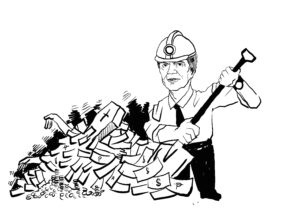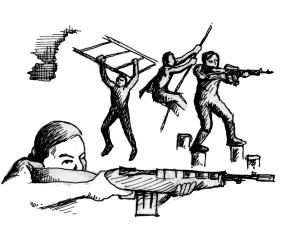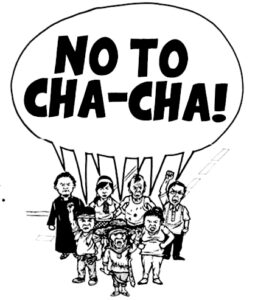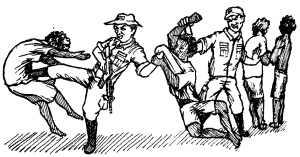Fallacies of the "detrimental effects" of wage increases

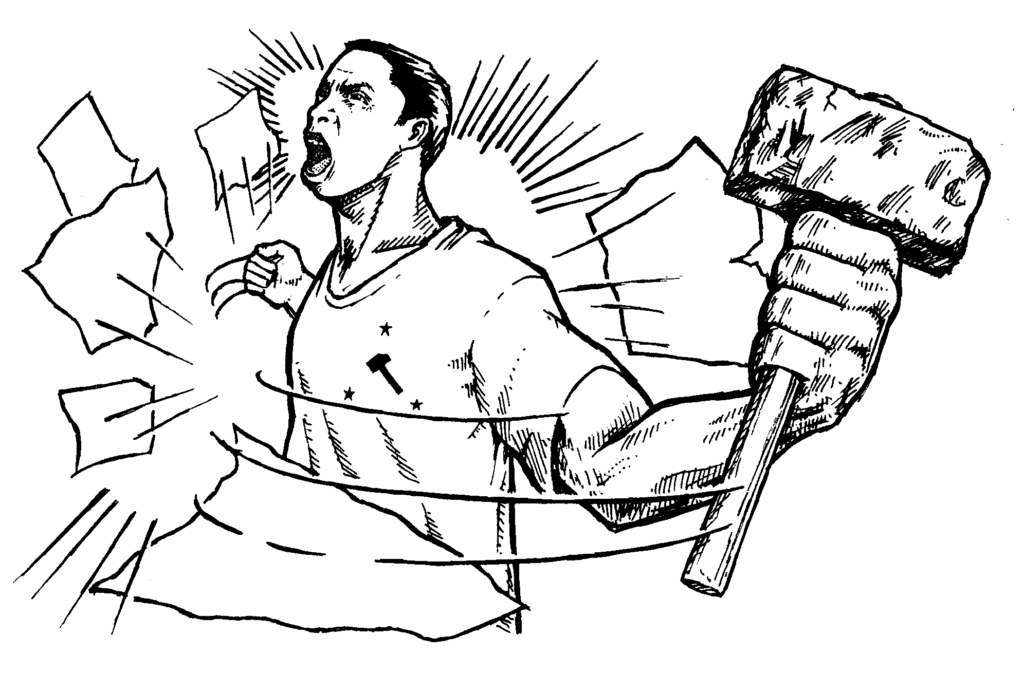
Capitalists, their congressional defenders and state agencies, once again sang in chorus about the “detrimental effects” of wage increases on the economy and the workers themselves. “Small businesses will close!” “Fees and prices will increase!” and worst, “It will burden workers!”
These excuses have long been repeatedly debunked. Ibon Foundation’s study of the country’s history of wage increases shows wage increases do not always precede increases in prices of goods and services. Many times, in fact, inflation went down, six months after wage increases.
These excuses are mere speculation, having no basis in Philippine history to prove direct causality between wage increase and price increases [of goods]. In practical experience, inflation rates have soared without even a minuscule increase in wages.
What is clear however is that workers’ wage levels have not kept up with relentless increases in the prices of goods. In December 2023, the real value of the ₱610/day minimum wage in the National Capital Region fell to ₱505.23. Conditions are worse in other regions nationwide.
It is also not true that a wage increase of ₱100/day or raising wages to ₱750/day or even ₱1,100/day will be detrimental to “small companies”. First, wage increase orders do not cover “micro” businesses (mostly sari-sari stores ran by unpaid family members or unpaid family workers). There are also many ways to ensure that small companies with 20 workers or less can keep up, such as providing financial assistance, low interest on loans, charging them less or no tax, helping them cope with high prices of production inputs and transportation charges, and many others.
Actually, wage orders cover only big businesses that make millions in profits but never raise wages until pushed by the unions or by the state, when forced by the labor movement. The Sy family’s malls, which pay the minimum wage to shop assistants and cashiers, are prime examples of short-changing workers, despite flaunting annual profit growths.
Big capitalists shamelessly use the “bankruptcy” of small businesses to drown the just demands for them to grant living wages to their workers.
Second, claims that “vast majority” of workers “will not benefit” from wage increase are false. More than half (51.4% or 3,163,581 out of 6,155,893) of the formal sector workers work in large companies earning billions, and thus have grounds to demand higher wages for their respective families to live decently. They will use the extra income to meet their minimum needs, such as food and transportation, which are mostly produced by local farmers or services rendered by their fellow small earners.
Third, profits of large and medium-sized companies will be reduced by less than 6.7% if wages were increased by ₱100. Even profits of micro and small enterprises will go down by only 7.6%-7.9%.
On the other hand, this means a more substantial wage increase and higher income for workers. In fact, ₱100 extra is equivalent to a measly ₱2,000 additional per month. A wage bill being floated in Congress proposes a more significant ₱400 increase in daily wages which would be equivalent to an extra ₱8,000 per month. However, this will still not cover the minimum needs of families, which require a minimum wage increase of ₱600 per day.


